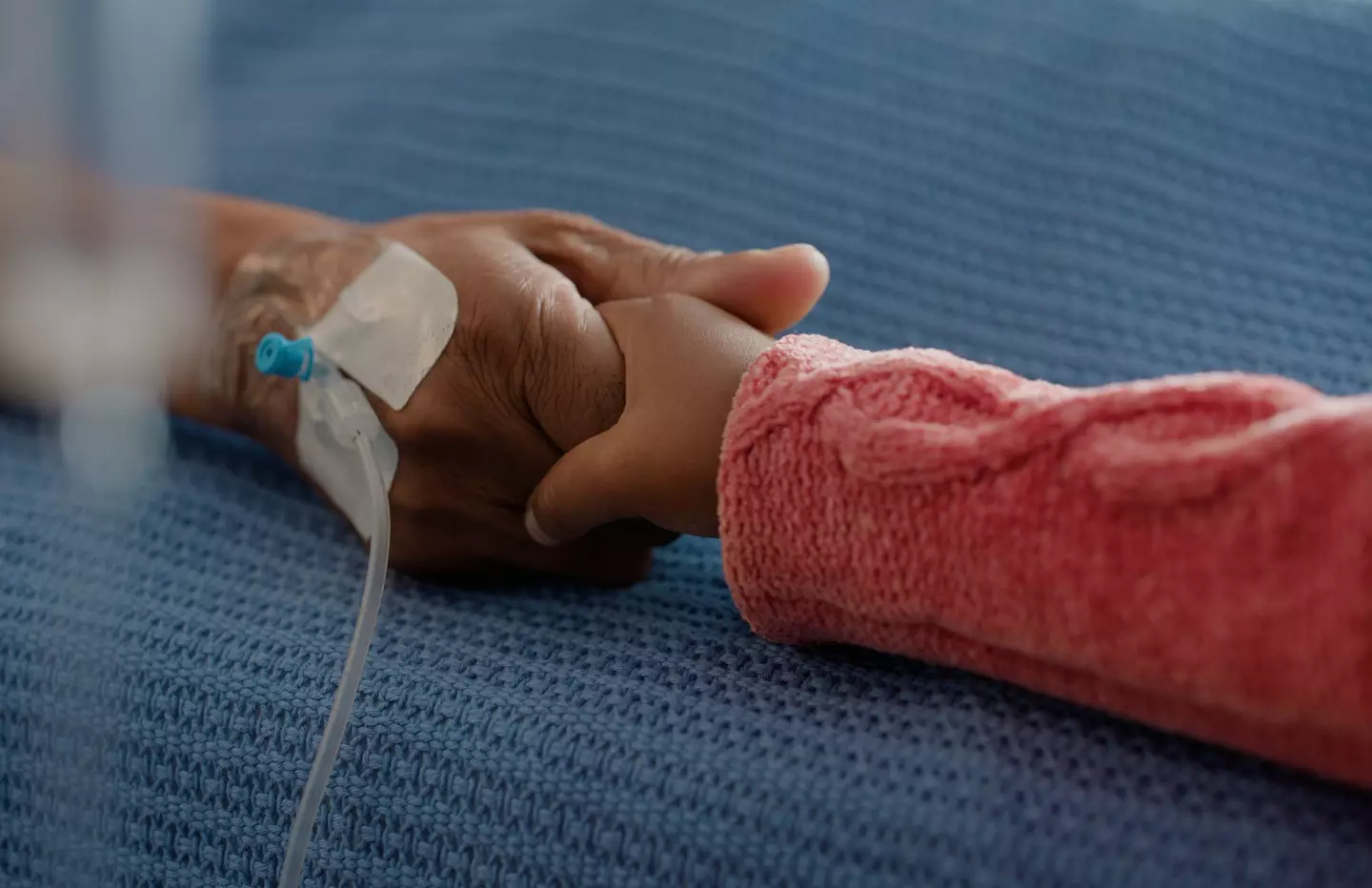
If you watch movies or listen to what popular culture says, you would think that someone who's about to die will see a bright light, or maybe voices of loved ones calling them to the other side.
We'll never know until our time comes, but a palliative care physician named Dr. Christopher Kerr might know a thing or two about what a dying person sees, as he has carried out a study on 1,000 people on their deathbeds, hearing what patients see before they pass on.
It sounds quite morbid, but it answers a frequently asked question.
Dr. Kerr is from Buffalo, New York, and explained that a number of things help patients come to accept their life decisions before death, through memories or unbelievable visions, as several medical professionals can back up.
Advert
He revealed that patients often have dreams and visions that put them at peace with their past after reconnecting with it, calling it 'fascinating'.
The medical professional also pointed out that children's experiences of death differ greatly to adults, especially those with decorated pasts, including those who might have committed crimes.
Speaking about the subject on the Next Level Soul podcast, the doctor remembered a man in his 40s that had been in prison and suffering with drug addiction and neck cancer, who had a dream about being attacked by those that he hurt in the past.
It seemed to banish his demons, as he asked to see his daughter to reconcile and express his love and sorrow, before passing away shortly after.

Dr. Kerr explained that children have a different end-of-life experience, as they do not have a fully developed concept of mortality, while also not knowing anyone who's died as someone that they can meet in the 'afterlife'.
Advert
Apparently, children will envision animals, who will communicate to them that 'they're loved and not alone'.
He also explained: “Children are creative and imaginative and can access that part of them."
One girl he knew explained exactly what she saw around her hospital to him, which he found interesting: “She created a castle for herself... there was a swimming pool, the animals were returned, there's a piano, there was a window with warm light coming through.”
Dr. Kerr asked: "What does the castle represent?"
Advert
To which she replied: "A safe place."
Overall, he believes that adult patients are 'not denying the bad things and painful things [that] transpire, but they address them and use them in a way that's very interesting.'

Based at Hospice & Palliative Care Buffalo, Dr. Kerr has published several studies on the subject, having recorded over 1,500 end-of-life events as part of his research.
Advert
Another one of these involves a man that took part in the Normandy invasion as a teenager, who has undiagnosed PTSD his whole life as he never sought help.
“He came into our unit at the end of his life... he was having such horrific experiences where he's seeing body parts and bloody water and screams and he couldn't rest. Patients need to be relaxed and accepting of their situation, to some extent, in order to die,” Dr. Kerr said.
“You can't really die unless you can sleep. It's pretty hard to do because you just pass in sleep."
But again, it took just one dream, which the medical expert explained: “He goes, ‘I had a great dream, where I relived the best day of my life,’ which was the day he received his discharge papers’.
Advert
"He had a really good dream, presumably in Normandy, and a soldier who he didn't know approached him and said, ‘No, we're going to come get you’."
According to Dr. Kerr, as the former soldier had come to peace with the fact 'that he had abandoned people', it came full circle, and he was ready to die.
The man slept peacefully after this, passing away in his sleep, once again - after he came to peace with their life decisions.
Featured Image Credit: Getty Stock PhotosTopics: Health